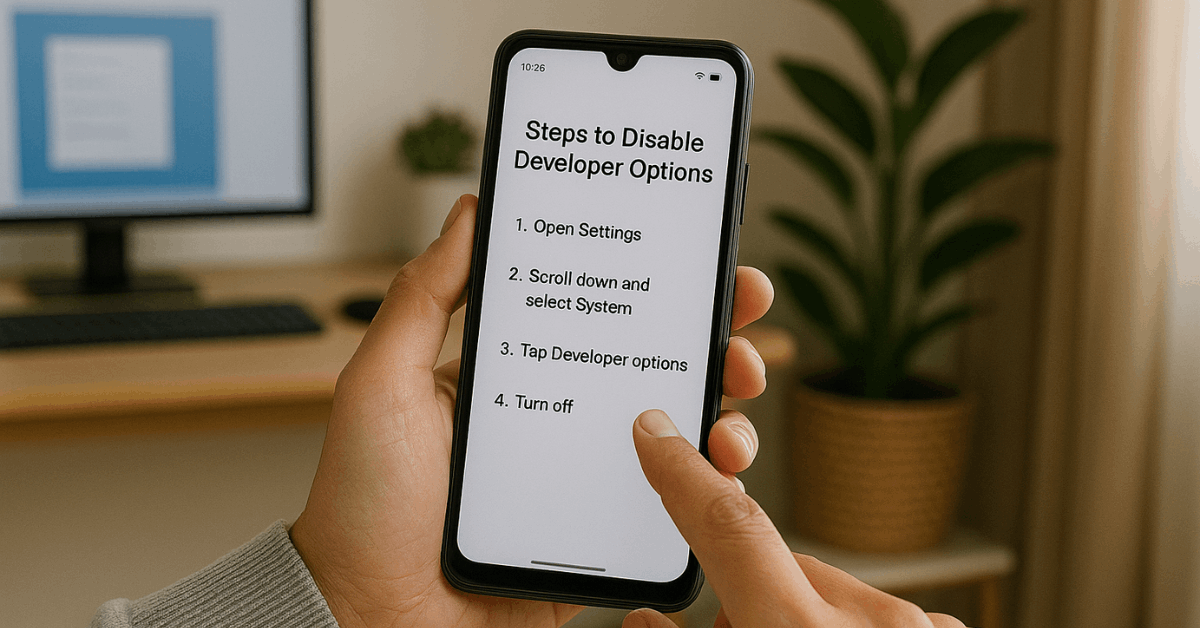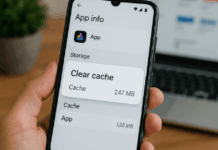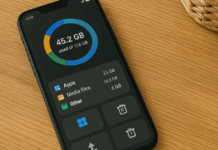Most Android users only interact with their devices’ basic features. However, enabling Developer Options can unlock deeper control and customization.
This hidden menu offers tools designed primarily for app developers. However, if used responsibly, regular users can also benefit from its settings.
What Are Developer Options on Android?
Developer Options is a hidden menu built into all Android devices. It allows users to access advanced functions typically used in software testing and debugging. You won’t see this feature unless you know how to activate it.
Accessing it gives you the ability to change how your phone behaves. However, it also comes with the responsibility of avoiding damaging system performance.
When Should You Enable Developer Options?
This feature is not for everyone, but it serves key use cases. Power users and developers rely on it to test apps or debug systems.
You may want to enable it if you need faster animations or plan to connect your phone to a PC.
It’s also essential to unlocking your bootloader or using ADB commands. Use it when you’re ready to explore features beyond typical settings.
How to Enable Developer Options
Enabling Developer Options is simple but varies slightly depending on your device brand. The process only takes a few taps in the settings menu.
This section breaks down the steps for most Android phones and specific ones like Samsung. Follow the steps carefully to unlock the menu safely.
For Most Android Devices
Most Android brands follow a similar method to enable Developer Options. These steps are quick and require only your device settings.
- Open Settings and go to About phone.
- Scroll to Build number and tap it 7 times quickly.
- Enter your device password or PIN when prompted.
- Return to Settings > System > Developer options to access the menu.
For Samsung Devices
Samsung phones have a slightly different layout in the settings menu. Still, the process for enabling Developer Options is almost identical.
- Open Settings, then go to About phone > Software information.
- Tap Build number 7 times.
- Enter your password, PIN, or pattern to confirm.
- You’ll now find Developer options in the main settings list.
Key Developer Options You Might Use
Not all features in Developer Options are useful for regular users. But a few specific tools stand out for improving performance and flexibility.
Use them with care. These settings affect how your device functions at a system level.
USB Debugging
USB Debugging enables communication between your phone and a computer. It’s essential for using Android Debug Bridge (ADB) and sideloading apps.
This is a must-have setting for developers or users flashing ROMs. Only enable it when needed, and turn it off after use for better security.
OEM Unlocking
OEM Unlocking allows you to unlock your phone’s bootloader. This is often the first step in rooting or installing a custom ROM.
Once enabled, your phone may perform a factory reset. Be cautious—enabling this can void warranties or expose your phone to risks.
Animation Scale Controls
Developer Options lets you reduce or disable window, transition, and animator duration scales. This can make your phone feel faster by speeding up UI interactions.
Lowering these values improves responsiveness. It’s a popular tweak among users who want to boost perceived performance.
Stay Awake
This feature keeps your screen on while charging. It’s helpful when testing apps or using your phone for display purposes.
Turn it off when not in use to conserve energy and protect screen health.
Show Taps and Pointer Location
You can enable visual feedback for taps and gestures. This is helpful for screen recording tutorials or debugging touch issues.
Pointer location also shows X/Y coordinates and touch pressure data in real time. These are advanced tools, so only use them when necessary.
Limit Background Processes
This setting restricts the number of background apps that can run at once, which can help improve performance and battery life.

Limiting processes is useful for older devices with low RAM. Be careful not to restrict apps you need running in the background.
Force GPU Rendering
Force GPU rendering uses your device’s graphics processor for 2D drawing tasks. It can make animations smoother on older phones.
This setting may drain more battery, but it can improve UI responsiveness. Enable it only if your device struggles with standard rendering.
Enable Strict Mode
Strict Mode flashes the screen when apps perform long operations on the main thread. It’s a developer tool that helps identify performance bottlenecks.
This feature shows where optimization is needed when building or testing apps. It is not recommended for regular users.
Select Debug App
This feature allows you to choose a specific app to debug. When selected, your device will treat this app as the one being tested.
It’s useful for testing how your apps behave under real-world conditions. Only use it if you understand Android debugging methods.
Show GPU View Updates
When enabled, this feature highlights parts of the screen that are being drawn with GPU acceleration. It’s a visual aid for developers checking UI efficiency.
The screen will flash as different layers render. This is not useful for daily use but helpful in performance analysis.
How to Turn Off Developer Options?
You can view which apps are allowed to run in the background. This helps manage battery life and prevent unnecessary resource usage.
If some apps drain the battery, you can restrict their background activity here. It gives you insight into how your apps behave behind the scenes.
Risks and Cautions When Using Developer Options
Developer Options can cause problems if misused. Some settings affect your device’s security, performance, or data.
Never adjust settings you don’t understand. Making the wrong changes could slow down your phone or create stability issues.
Leaving USB Debugging enabled can expose your device to threats. Only use sensitive features for short periods, then disable them.
How to Turn Off Developer Options?
Turning off Developer Options is easy and reversible. This removes the menu from your settings and disables all changes.
If you no longer need it, it’s smart to deactivate it. This step can prevent unintended tweaks or security concerns.

Steps to Disable Developer Options
You may want to remove Developer Options after you finish using it. Doing this is quick and helps keep your settings secure.
- Go to Settings > System > Developer options.
- Toggle the switch at the top to turn it off.
- The entire menu will disappear from your settings.
Final Thoughts: Use Developer Options With Caution
Developer Options gives you greater power over your Android device. But with that power comes the need for extra responsibility.
You should only enable features you understand fully. Always review what you’ve changed, and disable the settings when you’re done









